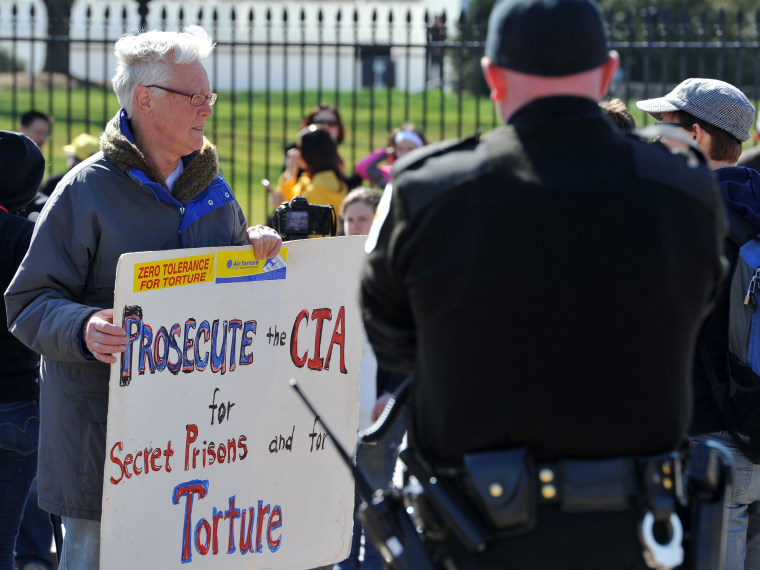A report released Tuesday finds that many of the interrogation techniques United States forces used on detainees during the administrations of Presidents Bill Clinton, George W. Bush, and Barack Obama constitute torture. The report states "that it is indisputable that the United States engaged in the practice of torture." In December 2012, the Senate Intelligence Committee adopted a 6,000 page report drawn solely from CIA records; however, that report remains classified. The nonpartisan Constitution Project commissioned the report from their Task Force on Detainee Treatment more than two years ago with the intent of compiling a thorough, publicly available presentation of past and current interrogation techniques.
The 11-member task force included former Senator Asa Hutchinson (R-AL), who served in President George W. Bush's administration from 2003-2005 as the Under Secretary for Border and Transportation Security in the Department of Homeland Security, and former Representative James Jones (D-OK) who served as the U.S. Ambassador to Mexico from 1993-1997. Among the other members were a three-star general and former president of the American Bar Association. The report does not draw from any classified documents. Rather, it relies on public records and more than 100 interviews that included interrogators, former detainees and military officers (some of whom remain anonymous while others are on the record), examining the conduct of U.S. forces in Afghanistan, Iraq, Guantanamo, and "black sites."
The report faults senior officials, military leaders, lawyers in the Justice Department's Office of Legal Counsel (OLC), and medical professionals who supervised these interrogations not only for their actions, but their failure to prevent abuse as well. The report finds the U.S. "violated its international legal obligations in its practice of the enforced disappearances and arbitrary detention of terror suspects" and that lawyers in the OLC "repeatedly gave erroneous legal sanction to certain activities that amounted to torture and cruel, inhuman or degrading treatment in violation of U.S. and international law." The report cites techniques including waterboarding, sleep deprivation, and Russian roulette.
The report concludes that neither the techniques constituting torture nor the "cruel, inhuman, or degrading" treatment led to any useful intelligence: "there is no firm or persuasive evidence that the widespread use of harsh interrogation techniques by U.S. forces produced significant information of value. There is substantial evidence that much of the information adduced from the use of such techniques was not useful or reliable."
The report carries no official weight and is not aimed at--or expected to--produce any repercussions or reprimands for those involved in carrying out the controversial policies.
